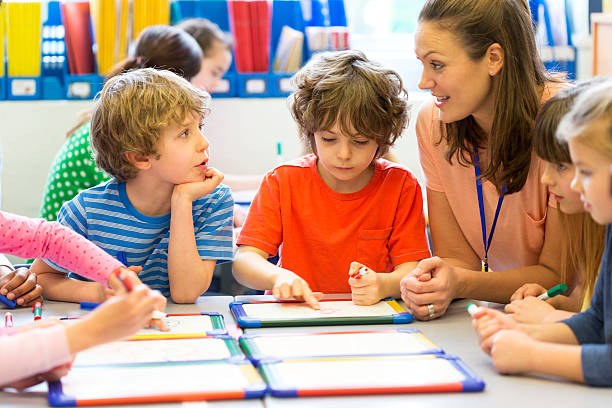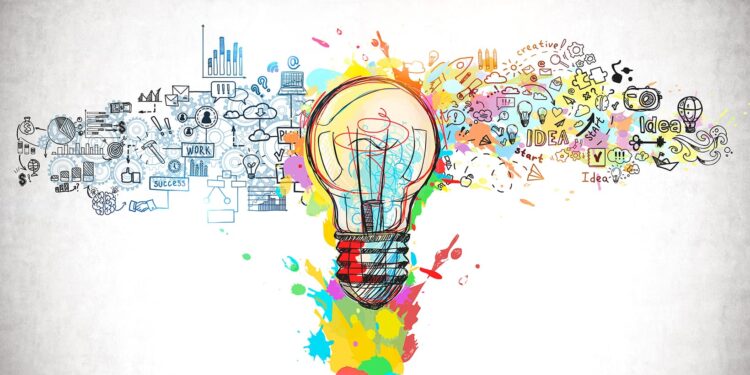In an increasingly complex and dynamic world, cultivating originality and imaginative thinking abilities is more essential than ever. Individuals need these skills to thrive in a variety of areas, including education, work, and personal relationships. Arts education offers a method of cultivating these abilities.
In this article, the teaching and learning of visual and performing arts education, such as music, dance, theatre, and graphic arts, is referred to as being educated in the arts. While some may regard art education as a non-essential component of education, a study has shown that it provides numerous benefits to students, including the development of originality and creative thinking skills.

Table of Contents:
- Introduction
- The Benefits of Arts Education
- Fostering Innovation and Creativity
- Improving Visual and Performing Arts Skills
- Frequently Asked Question
- Conclusion
2. The Benefits of Arts Education
-
Building Originality
Originality refers to the ability to think and express oneself in unique and unconventional ways. Being educated in the arts of originality provides learners with opportunities to explore their creativity and develop their original ideas. Through being educated in the arts, learners are encouraged to experiment with different techniques, materials, and mediums to create their unique works of art.
-
Developing Imagination
Imagination is the ability to form mental images or concepts of things that are not present in one’s surroundings. Arts education helps learners to develop their imagination by providing them with opportunities to explore different perspectives, ideas, and themes. This enables learners originality to broaden their minds and think beyond their immediate environment.
-
Enhancing Critical Thinking Skills
Critical thinking skills and originality are essential for learners to succeed academically and professionally. Arts education allows learners to analyse and interpret artworks, enhancing their critical thinking skills. Learners are encouraged to question and challenge the artworks they encounter, which promotes independent thinking and analysis.
3. Fostering Innovation and Creativity
Innovation and creativity are essential skills for individuals to succeed in today’s rapidly changing world. Arts education provides learners with opportunities to develop their creativity and innovative thinking abilities. Learners are encouraged to think outside the box and experiment with new ideas, which fosters innovation and creativity.

-
Encouraging Artistic Expression
Artistic expression is the ability to communicate ideas, emotions, and experiences through various art forms. Arts education provides learners originality with opportunities to express themselves artistically, which can help them to develop their communication and self-expression skills. Artistic expression also promotes empathy and understanding of different perspectives and cultures.
4. Improving Visual and Performing Arts Skills
Arts education originality provides learners with opportunities to develop their visual and performing arts skills. Learners are taught various techniques and methods to create artwork and perform in front of an audience. This enhances their technical proficiency and confidence in their artistic abilities.
-
Supporting Cognitive Development
Arts education has been shown to support cognitive development in learners. Studies have shown that learners who participate in being educated in the arts have better memory, attention, and problem-solving skills than those who do not. Arts education also promotes brain development and helps to improve overall cognitive function.
-
Nurturing Socio-Emotional Skills
Socio-emotional skills are essential for learners to succeed in their personal and professional relationships. Being educated in the arts provides learners with opportunities to develop their socio-emotional skills, including empathy, self-awareness, and social skills. This enables learners to develop positive relationships with others and become effective communicators.
3. Frequently Asked Questions
Q1. Is arts education only for individuals who want to pursue a career?
A. No, being educated in the arts is for everyone, regardless of whether they want to seek a career in the arts or not. Being educated in the arts provides learners with numerous benefits that can be applied to various parts of life, such as critical thinking skills, creativity, communication skills, and socio-emotional skills. Arts education can also be a fun method for students to express themselves and explore their creativity.
Q2. Does arts education only focus on traditional forms of art, such as painting and music?
A. No, arts education includes both traditional and modern art styles. Learners can experiment with a variety of visual and acting arts, such as painting, drawing, sculpture, photography, dance, theatre, music, and film.
Q3. How does arts education support cognitive development?
A. Arts education promotes neural growth and improves broad the ability to think, which helps to foster intellectual growth. Participation in being educated in the arts has been shown in studies to enhance memory, attention, and problem-solving abilities. Furthermore, being educated in the arts can improve critical thinking skills while also encouraging autonomous analysis and interpretation of artworks.
Q4. Can arts education be integrated into other subjects, such as science and maths?
A. Yes, art instruction can be incorporated into other topics like science and math. STEAM schooling refers to this. (Science, Technology, Engineering, Arts, and Maths). By incorporating being educated in the arts into other topics, students can create a holistic approach to learning that combines various skills and disciplines.
Q5. Does arts education have any socio-economic benefits?
A. Yes, art instruction can be provided online. With the advancement of digital technology, learners can now access being educated in art materials and engage online being educated in arts programmes from anywhere in the world. Online art education can also provide learners with new ways to interact with people from different cultures and viewpoints.
Q6. Can arts education be delivered online?
A. Yes, being educated in the arts can be provided online. With the advent of digital technology, learners can now access being educated in art resources and engage in online being educated in arts programmes from anywhere in the world. Online art education can also provide learners with new opportunities to engage with various cultures and perspectives.
Conclusion
Arts education originality provides numerous advantages to students, including the development of originality and creative thinking skills. Learners can improve their creativity, critical thinking, communication, and socio-emotional abilities by being educated in the arts.
Furthermore, being educated in the arts can be incorporated into other subjects, such as science and math, to provide a more comprehensive approach to learning. As a result, being educated in the arts is a critical component of education that should be pushed and supported at all levels.

Arts education is a wise investment in the future of a student. It equips students with the skills they need to thrive in a variety of areas of life, including personal and professional endeavours. Arts education can help learners’ cognitive and emotional growth by encouraging creativity, critical thinking, and socio-emotional skills.
Furthermore, being educated in the arts does not confine itself to traditional types of art. Learners can experiment with a variety of art forms, including performing arts such as ballet and theatre, as well as digital arts such as photography and film. The adaptability and inclusiveness of being educated in the arts make it an excellent choice for students of all ages and cultures.
In conclusion, being educated in the originality of the art is an important component of education that should not be ignored. It provides numerous benefits, including the development of originality and imaginative thinking abilities, both of which are necessary for today’s society. Educators can help learners develop the skills they need to thrive in their originality personal and professional endeavours by integrating being educated in the arts into other subjects and encouraging creativity and critical thinking.
Furthermore, being educated in the arts can significantly benefit society. It can foster social inclusion and cohesion by allowing learners from various backgrounds to interact with one another and explore their differences. Being educated in the arts can improve psychological well-being and mental health by providing a secure and nurturing place to enable pupils to express themselves.
Arts education originality can also be a powerful instrument for economic development. Learners can improve their creativity and innovative thinking skills by being educated in the arts, which are vital skills for entrepreneurship and employment creation. Furthermore, being educated in the arts can contribute to the growth of a thriving arts and culture sector, attracting tourists and creating cancan attract tourists and create revenue for local economies.









